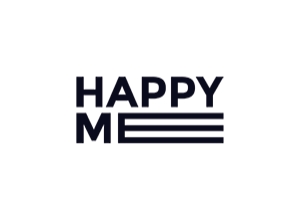The future of career chats: beyond performance reviews
For decades, the traditional performance review has been a staple in the corporate world. Typically conducted annually, these reviews have been the primary method for assessing employee performance, setting goals, and discussing compensation. The process often involves a formal meeting between a manager and employee, where feedback is provided, and a rating is assigned.
Despite their widespread use, traditional performance reviews have faced criticism for being too infrequent, backward-looking, and biased. They often fail to provide timely feedback, which can hinder employee development and motivation. Additionally, the high-stakes nature of these reviews can create stress and a focus on short-term goals over long-term growth.
The modern workplace demands agility and real-time communication. As such, there has been a shift towards more continuous, informal feedback mechanisms that promote ongoing development and address issues as they arise. This approach aligns better with the dynamic nature of today's work environments.
Understanding Career Chats
Career chats are structured discussions focused on an employee's career development, aspirations, and growth within the company. Unlike traditional reviews, they are forward-looking and centered on the employee's potential and long-term trajectory.
While performance reviews often concentrate on past performance and accountability, career chats emphasize the employee's future within the organization. They are collaborative, regular, and personalized conversations that build trust and align individual aspirations with company goals.
Implementing Career Chats in the Workplace
Effective career chats are characterized by their frequency, personalization, and focus on growth. They require active listening, open-ended questions, and a supportive environment that encourages honest dialogue.
Transitioning to career chats involves cultural change and buy-in from leadership. Organizations can start by integrating career chats into existing review processes, training managers on effective communication techniques, and setting clear expectations for these conversations.
Leaders play a crucial role in the success of career chats. Training should focus on developing coaching skills, fostering empathy, and learning to provide constructive, actionable feedback that empowers employees.
Technology and Career Chats
HR technology can streamline the process of scheduling, documenting, and tracking career chats. Tools like employee development platforms can help manage goals, competencies, and development plans, making the process more efficient and effective.
Artificial intelligence, machine learning, and predictive analytics are beginning to play a role in personalizing career chats. These technologies can provide insights into employee skills, predict future performance, and suggest tailored development paths.
Benefits of Career Chats for Organizations and Employees
Career chats can lead to higher levels of employee engagement by showing that the organization values and invests in their personal growth. This can increase job satisfaction and loyalty.
Regular career-focused discussions can help employees align their personal goals with organizational objectives, leading to improved performance and productivity.
By prioritizing career chats, companies can foster a culture that values continuous learning and development. This can attract and retain top talent, and drive innovation and competitiveness.
Challenges and Considerations
Implementing career chats can come with challenges such as resistance to change, time constraints, and ensuring consistency across the organization. Addressing these obstacles requires clear communication, adequate resources, and ongoing support.
While the qualitative benefits of career chats are clear, quantifying their impact can be more complex. Organizations should establish metrics to assess the effectiveness of career chats in achieving desired outcomes, such as reduced turnover, higher engagement, and increased productivity.






Comments (0)